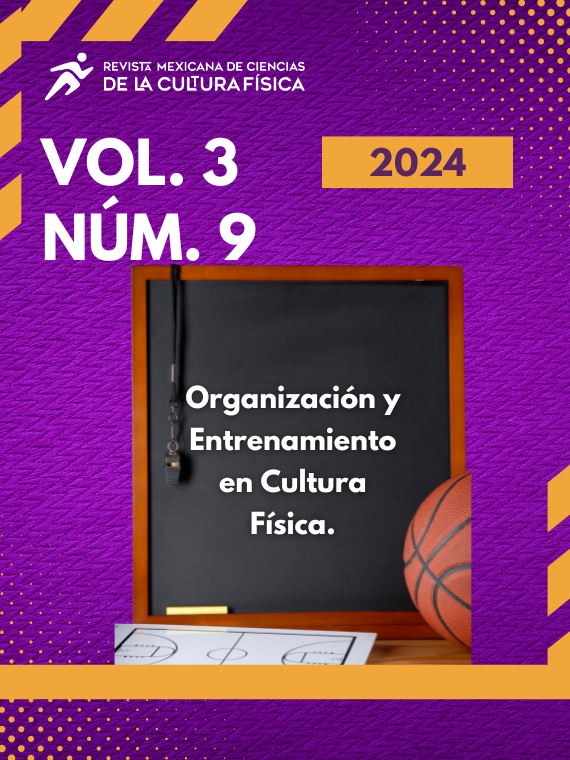Apoyo a la autonomía en educación superior con énfasis en ciencias de cultura física
DOI:
https://doi.org/10.54167/rmccf.v3i9.1597Palabras clave:
Teoría de la autodeterminación, Necesidades psicológicas básicas, Apoyo a la autonomía, Instrumentos, Educación superiorResumen
El objetivo de este trabajo fue analizar hallazgos más importantes y características de instrumentos usados para medir apoyo a la autonomía en estudiantes de educación superior en general, resaltando lo realizado en el área de ciencias de la cultura física, reportados recientemente en la literatura. Bases de datos utilizadas fueron: Scielo, EBSCO, Google Académico, Dialnet, Worldwide Science y SCOPUS. Solo 20 trabajos cumplieron con los indicadores CASPE. Todos los estudios utilizaron enfoques cuantitativos, sobresaliendo el diseño correlacional, con tendencia unánime hacia el uso de escalas tipo Likert. Un hallazgo importante fue que, a mayor precepción de los estudiantes de apoyo a la autonomía de sus docentes, mayor es su autoeficacia y compromiso académico, facilitando su aprendizaje.
Descargas
Citas
Abellán-Roselló, L., Ferández-Rodicio, C. I. & Reyes-Suárez, D. C. (2023). Diferencias en las percepciones del alumnado universitario sobre apoyos docentes según metodología, grado de estudios y edad. Revista Electrónica Interuniversitaria de Formación del Profesorado, 26(2), 193-205. https://doi.org/10.6018/reifop.555341
Barrientos-Illanes, P., Pérez-Villalobos, M. V., Vergara-Morales, J. y Díaz-Mujica, A. (2021). Influencia de la percepción de apoyo a la autonomía, la autoeficacia y la satisfacción académica en la intención de permanencia de estudiantado universitario. Revista Electrónica Educare, 25(2), 90-103. http://dx.doi.org/10.15359/ree.25-2.5
Black, A. E., & Deci, E. L. (2000). The effects of instructors’ autonomy support and students’ autonomous motivation on learning organic chemistry: a self-determination theory perspective. Sci. Educ. 84, 740–756. https://doi.org/10.1002/1098-237X(200011)84:6%3C740::AID-SCE4%3E3.0.CO;2-3
Buff, A., Reusser, K., Rakoczy, K. & Pauli, C. (2011). Activating positive affective experiences in the classroom: “nice to have” or something more? Learning and Instruction, 21(3), 452-466. https://doi.org/10.1016/j.learninstruc.2010.07.008
Burstein, A. B. & Kohn, E. (2017). What makes a good school leadership program? A qualitative study of the Lookstein Center Educational Leadership Advancement Initiative (ELAI). Journal of Jewish Education, 83(2), 109-132. https://doi.org/10.1080/15244113.2017.1307052
Clifford, V. (1997). Self-directed learning as a vehicle to becoming a researcher. Proceedings of Higher Education Research and Development, 176-183. https://www.researchgate.net/publication/301202939
Deci, E. L. & Ryan, R. M. (1985). Intrinsic motivation and self-determination in human behavior. https://eduq.info/xmlui/handle/11515/34618
Doménech, F. & Abellán, L. (2021). The MOCSE Model: Keys to promoting reflection on teaching and improvements in student learning. http://digital.casalini.it/9788418432866
Frikha, M., Mezghanni, N., Chaâri, N., Ben Said, N., Alibrahim, M. S., Alhumaid, M. et al. (2024). Towards improving online learning in physical education: Gender differences and determinants of motivation, psychological needs satisfaction, and academic achievement in Saudi students. Plos one, 19(2), e0297822. https://doi.org/10.1371/journal.pone.0297822
Girelli, L., Alivernini, F., Lucidi, F., Cozzolino, M., Savarese, G., Sibilio, M. & Salvatore, S. (2018). Autonomy supportive contexts, autonomous motivation, and self-efficacy predict academic adjustment of first-year university students. In Frontiers in Education, 3(95). https://doi.org/10.3389/feduc.2018.00095
Großmann, N., Fries, S. & Wilde, M. (2023). Is the practice of autonomy support the missing element in teacher training at university? A study on the effects of an intervention based on self-determination theory on biology preservice teachers’ knowledge, beliefs, and intentions. Frontiers in Psychology, 14, 1279771. https://doi.org/10.3389/fpsyg.2023.1279771
Gutiérrez, M., Tomás, J. M. y Alberola, S. (2018). Apoyo docente, compromiso académico y satisfacción del alumnado universitario. Estudios sobre Educación, 35, 535 – 555. https://10.15581/004.35.535-555
Hagger, M. S., Chatzisarantis, N. L., Hein, V., Pihu, M., Soos, I., & Karsai, I. (2007). The perceived autonomy support scale for exercise settings (PASSES): Development, validity, and cross-cultural invariance in young people. Psychology of Sport and Exercise, 8(5), 632-653. https://doi.org/10.1016/j.psychsport.2006.09.001
Hernández, E. H. y Moreno-Murcia, J. A. (2017). Apoyo a la autonomía entre estudiantes, estrés percibido y miedo a la evaluación negativa: relaciones con la satisfacción con la vida. Psicología Conductual, 25(3), 517-528. https://psycnet.apa.org/record/2017-55455-005
Hernández, E. H., Lozano-Jiménez, J. E., de Roba, J. M. & Moreno-Murcia, J. A. (2022). Relationships among instructor autonomy support, and university students’ learning approaches, perceived professional competence, and life satisfaction. Plos one, 17(4), e0266039. https://doi.org/10.1371/journal.pone.0266039
Jang, H., Kim, E.U. & Reeve, J. (2012). Longitudinal test of self-determination theory’s motivation mediation model in a naturally occurring classroom context. Journal of Educational Psychology, 104(4), 1175-1188. https://doi.org/10.1037/a0028089
Jeno, L. & Diseth, A. (2014). A self-determination theory perspective on autonomy support, autonomous self-regulation, and perceived school performance. Reflecting Education, 9(1), 1-20. http://www.reflectingeducation.net/index.php/reflecting/article/view/121
Jeno, L. M., Nylehn, J., Hole, T. N., Raaheim, A., Velle, G. & Vandvik, V. (2023). Motivational determinants of students’ academic functioning: The role of autonomy-support, autonomous motivation, and perceived competence. Scandinavian Journal of Educational Research, 67(2), 194-211. https://doi.org/10.1080/00313831.2021.1990125
Jiang, J. & Tanaka, A. (2022). Autonomy support from support staff in higher education and students' academic engagement and psychological well-being. Educational Psychology, 42(1), 42-63. https://doi.org/10.1080/01443410.2021.1982866
Johansen, M. O., Eliassen, S., & Jeno, L. M. (2023) The bright and dark side of autonomy: How autonomy support and thwarting relate to student motivation and academic functionin. Frontiers in Education, 8, 1-13. https://doi.org/10.3389/feduc.2023.1153647
León, J. & Núñez, J. L. (2013). Causal ordering of basic psychological needs and well-being. Social indicators research, 114(2), 243-253. https://doi:10.1007/s11205-012-0143-4
León, J., Núñez, J. L. & Liew, J. (2015). Self-determination and STEM education: effects of autonomy, motivation, and self-regulated learning on high school math achievement. Learning and Individual Differences, 43, 156-163. https://doi.org/10.1016/j.lindif.2015.08.017
López-Angulo, Y., Cobo-Rendón, R. C., Pérez-Villalobos, M. V. y Díaz-Mujica, A. E. (2021). Apoyo social, autonomía, compromiso académico e intención de abandono en estudiantes universitarios de primer año. Formación universitaria, 14(3), 139-148. https://dx.doi.org/10.4067/S0718-50062021000300139
Lozano-Jiménez, J. E., Huéscar, E. & Moreno-Murcia, J. A. (2021b). Effects of an autonomy support intervention on the involvement of higher education students. Sustainability, 13(9), 5006. https://doi.org/10.3390/su13095006
Lozano-Jiménez, J. E., Huéscar, E., & Moreno-Murcia, J. A. (2021). From autonomy support and grit to satisfaction with life through self-determined motivation and group cohesion in higher education. Frontiers in Psychology, 11, 579492. https://doi.org/10.3389/fpsyg.2020.579492
Matos, L. (2009). Adaptación a dos cuestionarios de motivación: autorregulación del aprendizaje y clima de aprendizaje. Persona: Revista de La Facultad de Psicología (12), 167-185. https://doi:10.26439/persona2009.n012.282
Matos, L., Reeve, J., Herrera, D. & Claux, M. (2018). Students’ agentic engagement predicts longitudinal increases in Perceived Autonomy Supportive Teaching for first-year university student. Electronic Journal of Research in Educational Psychology, 12(2), 541-562. https://doi.org/10.1080/00220973.2018.1448746
Moreno-Murcia, J. A., Huéscar, E., León, J., Fin, G., Nodari-Júnior, R. J., Valero-Valenzuela, A., … Teixeira, D. (2024). Motivación para aprender: un estudio internacional multinivel sobre la autonomía de los estudiantes y el énfasis de los docentes en la utilidad del contenido. Anales de Psicología / Annals of Psychology, 40(2), 265–271. https://doi.org/10.6018/analesps.571161
Moreno-Murcia, J. A., Huéscar, E., Pintado, R., & Marzo, J. C. (2019). Diseño y validación de la Escala de Apoyo a la Autonomía en educación superior: Relación con la competencia laboral del discente. Revista Española de Orientación y Psicopedagogía (REOP), 30(1). http://hdl.handle.net/11162/192023
Moreno-Murcia, J. A., Ruíz, M., Torregrosa, S. y Alias, A. (2017). Estimación del estudiante profundo a través de un modelo cognitivo-social. Profesorado. Revista de Currículum y Formación de Profesorado, 21(3), 239-257. http://www.redalyc.org/articulo.oa?id=56752489012
Moreno-Murcia, J., Huéscar Hernández, E., Andrés-Fabra, J., & Sánchez-Latorre, F. (2020). Adaptación y validación de los cuestionarios de apoyo a la autonomía y estilo controlador a la educación física: relación con el feedback. Revista Ciencias de la Actividad Física UCM, 21(1), 1-16. https://doi.org/10.29035/rcaf.21.1.3
Moreno-Murcia, J.-A., Huéscar, E., León, J., Valero-Valenzuela, A., Fin, G., Nodari-Júnior, R.-J., Tristán, J.-L., Gastélum-Cuadras, G., Vargas-Vitoria, R., Cid, L., Monteiro, D., & Teixeira, D.-S. (2021). Modelo cognitivo-motivacional para la promoción de la persistencia en Educación Superior: relación entre la organización docente, la competencia del alumnado y el «grit». Estudios Sobre Educación, 41, 183-201. https://doi.org/10.15581/004.41.003
Moreno-Murcia, J.A.; Huéscar Hernández, E.; Cid, L.; Monteiro, D.; Rodrigues, F.; Teixeira, D.; M. López-Walle, J.; Vergara-Torres, A.; Tristan, J.; Gastélum-Cuadras, G.; et al. (2020). Assessing the Relationship between Autonomy Support and Student Group Cohesion across Ibero-American Countries. Int. J. Environ. Res. Public Health, 17, 3981. https://doi.org/10.3390/ijerph17113981
Nunally, J. (1991). Teoría psicométrica. México: Trillas
Oriol-Granado, X., Mendoza-Lira, M., Covarrubias-Apablaza, C. G., & Molina-López, V. M. (2017). Positive emotions, autonomy support and academic performance of university students: The mediating role of academic engagement and self-efficacy. Revista de Psicodidáctica (English ed.), 22(1), 45-53. DOI: https://doi.org/10.1387/RevPsicodidact.14280
Quijano, R. A. y Magaña, D. E. (2021). Propiedades psicométricas de la escala: percepción sobre las tecnologías de la información y comunicación para la gestión del conocimiento. PAAKAT: revista de tecnología y sociedad, 11(20). https://doi.org/10.32870/pk.a11n20.536
Reeve, J. & Jang, H. (2006). What teachers say and do to support students’ autonomy during a learning activity. Journal of Educational Psychology, 98(1), 209-218. https://psycnet.apa.org/doi/10.1037/0022-0663.98.1.209
Ribeiro-Silva, E., Amorim, C., Aparicio-Herguedas, J. L., & Batista, P. (2022). Trends of active learning in higher education and students’ well-being: A literature review. Frontiers in Psychology, 13, 844236. https://doi.org/10.3389/fpsyg.2022.844236
Ryan, R. M. & Deci, E. L. (2000a). Self-determination theory and the facilitation of intrinsic motivation, social development, and well-being. American psychologist, 55(1), 68-78. https://doi.org/10.1037/0003-066X.55.1.68
Ryan, R. M. & Deci, E. L. (2000b). The darker and brighter sides of human existence: basic psychological needs as a unifying concept. Psychological Inquiry, 11(4), 319-338. https://doi.org/10.1207/S15327965PLI1104_03
Salazar-Ayala, C. M. y Gastélum-Cuadras, G. (2020). Teoría de la autodeterminación en el contexto de educación física: Una revisión sistemática. Retos, 38(38), 838-844. https://doi.org/10.47197/retos.v38i38.72729
Salessi, S., & Omar, A. (2016). Desarrollo y validación de una escala para medir actuación emocional en el trabajo. Revista Iberoamericana de Diagnóstico y Evaluación – e Avaliação Psicológica. RIDEP, 1 (41), pp. 66-79. http://www.redalyc.org/articulo.oa?id=459646901007
Sierens, E., Vansteenkiste, M., Goossens, L., Soenens, B. & Dochy, F. (2009). The synergistic relationship of perceived autonomy support and structure in the prediction of self-regulated learning. British Journal of Educational Psychology, 79, 57-68. https://doi.org/10.1348/000709908X304398
Sulz, L., Temple, V. & Gibbons, S. (2016). Measuring student motivation in high school physical education: Development and validation of two self-report questionnaires. The Physical Educator, 73(3), 530-554. http://dx.doi.org/10.18666/TPE-2016-V73-I3-6370
Tomás, J. M. y Gutiérrez, M. (2019). Aportaciones de la teoría de la autodeterminación a la predicción de la satisfacción escolar en estudiantes universitarios. Revista de Investigación Educativa, 37(2), 471-485. https://doi.org/10.6018/rie.37.2.328191
UNESCO (2017). Día mundial de los docentes 05 de octubre de 2017 https://es.unesco.org/themes/docentes/dia-mundial-docentes
Vergara-Morales, J., del Valle, M. D., Díaz, A., Matos, L. y Pérez, M. V. (2019). Efecto mediador de la motivación autónoma en el aprendizaje. Revista electrónica de investigación educativa, 21, 1-10. https://doi.org/10.24320/redie.2019.21.e37.2131
Williams, G. C. & Deci, E. L. (1996). Internalization of biopsychosocial values by medical students: A test of self-determination theory. Journal of Personality and Social Psychology, 70(4), 767–779. https://doi.org/10.1037/0022-3514.70.4.767
Williams, G. C., Grow, V. M., Freedman, Z. R., Ryan, R. M., & Deci, E. L. (1996). Motivational predictors of weight loss and weight-loss maintenance. Journal of Personality and Social Psychology, 70(1), 115–126. https://doi.org/10.1037/0022-3514.70.1.115
Zheng, J., Jiang, N. & Dou, J. (2020). Autonomy support and academic stress: A relationship mediated by self-regulated learning and mastery goal orientation. New waves-educational research and development journal, 23, 43-63. https://files.eric.ed.gov/fulltext/EJ1264274.pdf
Descargas
Publicado
Cómo citar
-
Resumen101
-
PDF88
Número
Sección
Licencia
Derechos de autor 2024 Morayma Josefina Gómez-Correa, Juan Cristóbal Barrón-Luján, Gabriel Gastélum-Cuadras

Esta obra está bajo una licencia internacional Creative Commons Atribución-NoComercial 4.0.













